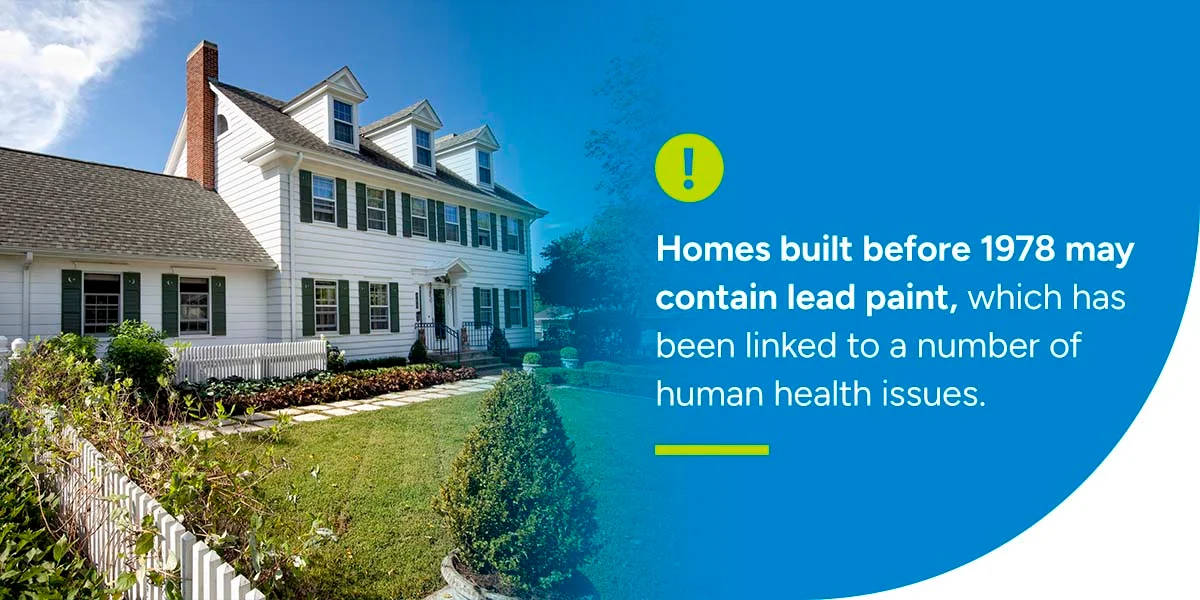Home appraisals often strike a bit of fear into the hearts of home buyers and home sellers alike. For buyers, appraisal results determine the amount of loan a lender will offer them. For sellers, appraisal results mean making difficult decisions about which repairs are worth the expense, time, and effort involved.
For both, the appraisal can be a deal-breaker. Read on to learn about the most common appraisal required repairs.
What Is a Home Appraisal and Why Is It Important?
A home appraisal is typically required when a buyer wants to get a loan for the seller’s house and the buyer’s mortgage company sends a state-licensed, unbiased appraiser to evaluate the condition and value of the house.
Home appraisals are essential for ensuring buyers and sellers make informed decisions about their purchase or sale. This process involves the appraiser creating a detailed written appraisal report. This report includes:
- A description of the property.
- Its location.
- Comparable property sales in the area.
- Best and highest uses of the property.
- Current market area trends.
In some cases, the lender may require repairs based on their findings. This ensures that the property is in an acceptable condition that won’t prevent them from offering a loan to the buyer.
What Do Appraisers Look For?
Before or after their evaluation of your property, an appraiser will look at comparable properties. They will also view your house and examine three critical aspects of the house to create an accurate report.
1. Structural Issues
The appraiser will typically check for signs of damage that may negatively affect the home and those in it. Structural characteristics typically include the property’s walls, roof, foundation and floors. The appraiser will evaluate whether the roof is still of good quality and free of leaks and holes, if there are any structural deficiencies in the floors and walls and whether there are cracks in the foundation.
2. Health and Safety Concerns
If your area is prone to extreme weather or other environmental concerns, the appraiser may check whether the house is at high risk for wildfires and floods. They will also check whether any aspects of the home’s current state may cause harm or inconveniences to those living inside. This means that mold, water damage, electrical hazards and plumbing issues all contribute to the valuation of your property.
3. Cosmetic Improvements
When your home has cosmetic flaws like peeling paint and flooring damage, it may impact the appraisal report. For this reason, homeowners may need the evaluate exterior maintenance needs and opportunities for interior improvements. Some may even implement upgrades and renovations for special features like sprinkler systems, pools and fireplaces to potentially increase its value.
Top 5 Most Common Appraisal Required Repairs
While we’ve looked at the general concerns that may stand out to appraisers, what are some of the most crucial property issues to fix? Here are five of the most common concerns.
Appraisal Issue 1: Roof Repair
One of the most common appraisal issues is also one of the most expensive: Roof repairs. The average cost to replace a roof runs between $4,700 and $10,400, or about $405 per square foot.
Home appraisers will look for tell-tale signs of damage, such as:
- Light shining through from inside the attic
- Leaking, water damage, dark spots, or trails
- Sagging areas
- Pieces of shingles in rain gutters
- Excessive wear and tear around vents and chimneys
Asphalt shingle roofs generally last up to 30 years, while tile roofs may last up to 100 years. However, mortgage lenders often require that a roof has at least three years of life expectancy in order to approve a loan.
Appraisal Issue 2: Paint Problems
Peeling paint may be unattractive, but that’s not the only reason an appraiser may cite it.
Did you know that paint can also be a health hazard? Homes built before 1978 may contain lead paint, which has been linked to a number of human health issues.

Many mortgage lenders won’t issue a loan until paint issues are repaired. This includes government loans such as FHA and USDA. What if the home was built after 1978? Many appraisers will still cite peeling paint, as bare wood can hasten decay. That’s not good for a home’s long-term value.
Appraisal Issue 3: Hazardous Handrails
If your home has missing or broken handrails, be prepared for the appraiser to cite them.
Most mortgage lenders require any set of three steps or more to have a handrail. A broken or missing railing is considered a safety hazard. Porches, balconies, and decks may also be required to have a handrail, in order for lenders to issue a loan.
Appraisal Issue 4: Wonky Wiring
Of course, electrical system problems send up red flags. But what are appraisers looking for when they inspect a home’s electrical system?
One common issue lies in a home’s amperage. If the house has a 60 amp electrical system, many lenders won’t issue a mortgage. Most bank appraisals will require a system upgrade before approving a loan.
Appraisal Issue 5: Haywire HVAC
Before rubber-stamping a loan, a traditional mortgage lender needs to know that a home has a functioning heating and cooling system.
The appraiser will check to see that the home’s HVAC system is working properly, including the furnace, air conditioning unit, venting, and duct ways.
Like roof work, HVAC repair and replacement isn’t cheap. A new unit costs between $2,000 and $5,000, while a system replacement can run up to $10,000.
What Happens When the Appraisal Is Low?
While a great option is to take care of the required repairs before getting an appraisal done, in some cases, an appraiser may find additional issues with the property. There are generally three things that may happen when an appraisal is low:
- Extra repairs: You may need to do more repairs to meet the asking price better, although this may cause delays in closing the deal.
- Lower sale price: If you’re unable to make the repairs to get a higher appraisal, you may negotiate a lower asking price.
- Canceled agreement: If the buyer and seller have issues deciding the way forward, they may opt to cancel the deal.
Steps You Can Take to Avoid Low Appraisals
In addition to making the required repairs before an appraisal, homeowners can also clean and declutter the home before the appraisal and make improvements to the exterior and landscaping to boost its appeal. It may also help to document all the repairs and improvements and gather documents that might offer valuable insight to the appraiser.
Are repairs and improvements out of your budget? Whether the repairs are too costly or you simply lack the time, selling your house as-is may be your best option. This solution allows you to sell your home for cash without doing appraisal-required repairs and going through a lengthy sale process.





